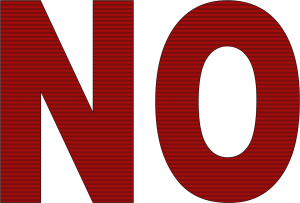Finding Leadership Time
 There’s lots of information out there about time management and how to find more time and get the best out of your available time. In our world, we have lots of things that demand our time and want a piece of our day.
There’s lots of information out there about time management and how to find more time and get the best out of your available time. In our world, we have lots of things that demand our time and want a piece of our day.
- Our work which can take 40 or more hours a week
- Our house which demands we clean it occasionally
- Our family which would like meals every now and then
- Our kid that would like us to take them to dance class
- Our other kid that would like us to them to football practice
- Our other other kid who would like a playdate
- Our elderly parents who would like use to drop by and help them with something
- Our church committee that wants us to volunteer to help out with the rummage sale
- Our spouse who would like us to pay a little attention to them while they tell us about THEIR day
- The dog who would like to go for a walk
- Our laundry that needs to be washed
- Our friend who would like to catch up over coffee/beer
- Our local charity that wants us to participate in a fund raiser
And the list goes on. From the moment we rise until we collapse exhausted in our bed, there are demands on our time. They come at us from all directions and call us to action on their behalf. And we respond, because we are people of action and people of action take action when called upon in the service of others, right?
Too Much
So, how do you deal with all that? Isn’t there some special trick or time management technique that is going to help me get all this in? Isn’t that some super secret technique that I can apply that will help me manage and free up my time?
The Time Management Solution
Well, as a matter of fact, there is! This is actually a secret that has been available for centuries but little used as of late.
In fact, it seems like many people aren’t even aware of this secret, not even sure of its existence.
It is both simple and hard.
Yet if you apply it constructively, you will be amazed at how much time it will free up.
Do you wanna know what this secret is; the key to handling your time with skill and clarity?
Here it is.
Listen up!
Come closer!
The secret is:
Say NO.

No joke! It’s that simple. Say NO. When someone says, you are such a go-getter can I convince you take on another project for our church committee?
NO.
You don’t owe an explanation. They are not entitled to one.
You are not an evil person for saying NO. You are not selfish.
In fact, you are being considerate and caring. You are wanting to save yourself for the things where you can really add value by choosing the places you serve and when you serve. A Mayo Clinic report even suggests that learning to say NO is healthy, allowing you to be at your best for others.
In context, the key is you are not going to say NO to everything. However, you are going to say NO when the activity is not the best use of your time, talents, and abilities.
You will say YES where the opportunities to serve allow you to provide maximum value. As John Maxwell says, you must learn to
Say NO to the good so you can say YES to the best!
A Story of Not Saying NO
Years ago, I was asked by my church to serve as the church treasurer. A high profile role and I was lured by the promise that such a position would bring me to the forefront of the leadership within the church. Let’s be clear. I will likely never be known as a financial wizard. My wife, Sherry, balances the checkbook and handles accounts. She is good at that. I am not and don’t really want to be. Despite all that, I said yes.
Big mistake!
Because of my lack of skill, it took way too long to complete any of the responsibilities of the role. Balancing accounts became an all-nighter. This was not made easier by my general distaste for doing any of it anyway. So my motivation waned, the job suffered, and eventually I left the role by mutual agreement.
I said yes to the wrong thing. It was not the best use of my skills and abilities and did not allow me to provide maximum value to the church, so we all suffered as a result.
Get Your Leadership Time Back
Employ the secret today.
Expect the best out of yourself and refuse to be placed where you cannot give it.
Do yourself and others a big favor and employ the strongest leadership time management tool you have: your ability to make a choice.
How to Say No Gracefully
I learned this secret from Bob Burg. I have applied it many times and it works just great! If it works for you, the credit goes to Bob.
When someone makes a request you wish to say no to, use a response that is both gracious and polite. Simply say,
“Thank you so much for considering me. While it is not something I choose to pursue, I want you to know how grateful I am that you thought of me.”
If they press the matter, give a shorter but final response. Still polite and gentle.
“I would rather not. Thank you.”
As I mentioned earlier, the one thing you NEVER DO is give a reason for saying no. When you give a reason, you have now opened discussion for someone to convince why your reason is wrong, ill conceived, or thoughtless. Don’t.
Choose to give your best by saying no.
Struggling with how to communicate effectively with the people who matter? I can help you with strategies to make you more effective. Contact me TODAY for a free Discovery Strategy Session.


 The last question leads to the last point. As the
The last question leads to the last point. As the  If you listen to how many people talk about leadership, one thing becomes clear. They don’t really know what leadership is. You may hear them talk about someone being promoted or hired into a position of leadership.
If you listen to how many people talk about leadership, one thing becomes clear. They don’t really know what leadership is. You may hear them talk about someone being promoted or hired into a position of leadership. While sitting in the boat you are surrounded by the tools you need to sail, but you must first gain knowledge about sailing. You must spend time developing and applying the skills to sail. Knowing how to gauge the wind. Navigating the water. Determining course. Bringing all elements in line with moving in the desired direction on the water. You must know how to trim the sails and handle the helm. How to coordinate the crew and change direction as the sea and wind changes to keep the ship on course. You must be mentored by a more experienced sailor. You also must learn from your mistakes on the water. And you must do all of this day in and day out to become the sailor you need to be. The sailor you are meant to be.
While sitting in the boat you are surrounded by the tools you need to sail, but you must first gain knowledge about sailing. You must spend time developing and applying the skills to sail. Knowing how to gauge the wind. Navigating the water. Determining course. Bringing all elements in line with moving in the desired direction on the water. You must know how to trim the sails and handle the helm. How to coordinate the crew and change direction as the sea and wind changes to keep the ship on course. You must be mentored by a more experienced sailor. You also must learn from your mistakes on the water. And you must do all of this day in and day out to become the sailor you need to be. The sailor you are meant to be.


